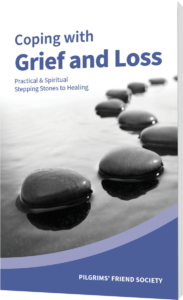 Assisted dying is being debated in Parliament in the next few weeks with a view to changing the law to make it legal. Those who support a change in the law argue that the choice to decide when and where to die is an individual’s undeniable right.
Assisted dying is being debated in Parliament in the next few weeks with a view to changing the law to make it legal. Those who support a change in the law argue that the choice to decide when and where to die is an individual’s undeniable right.
But do they have the right to put millions of vulnerable people, including the elderly, at risk?
Because this law would prioritise the personal freedom of the individual over the welfare of many of the most vulnerable in our society. (Thanks to Dr Simon Eyre FRCP for his clear letter in the Telegraph this morning.) Those who would ask for it so that they would not be a burden.
Those for the change argue that there would be safeguards to this happening. But there is no way to safeguard against the hidden, psychological pressures people would be experiencing. We hear of it, already. ‘I don’t want to be a burden’ often comes from frailer, older people. Thank God for the Scriptures, which tell us to bear one another’s burdens.
Proponents of assisted suicide also don’t see how this law has changed the zeitgeist of cultures where it has been introduced. In Canada, it now includes people with mental health issues, disabilities and those who don’t have enough to live on. In 2015 Hull University published research showing that in Belgium, 13,000 elderly patients had been euthanised without their, or their families’ knowledge, based on their doctors’ subjective view of their quality of life. In Oregan, patients with complex issues are offered funding for assisted dying instead of health care. Google for information and find more facts… there is so much.
We don’t need assisted dying: we need better funded palliative care. LET’S PRAY ABOUT THIS!
Last week a dear old friend, a retired pastor, died of vascular dementia. He had been living with it for six years, and his wife (my close friend) had cared for him tenderly until a fall took him into hospital where he deteriorated fast. Her own health had declined to the point that going into these hospital visits she needed a wheelchair to lean on and push down the long corridors, unless someone was with her to say ‘hop in’.
After six weeks and much wrangling with Social Services, he was transferred to a local care Home. By then he was struggling with swallowing and breathing and spent much time unconscious or sleeping, apart from a few blessed lucid moments. My friend asked God to take him Home swiftly, as she’d done before in this devastating illness. And He answered: after a few days my friend was ‘promoted to Glory’ – that lovely term the Salvation Army uses.
And like oil on troubled water my close friend is comforted by the loving care he received in the Home. ‘Nothing was too much trouble for them,’ she told me. ‘One carer even came in on her day off to check that we were all right.’ The expert, palliative care her beloved husband received in those last days soothes her soul and is worth more than silver or gold. It is helping her recover.














